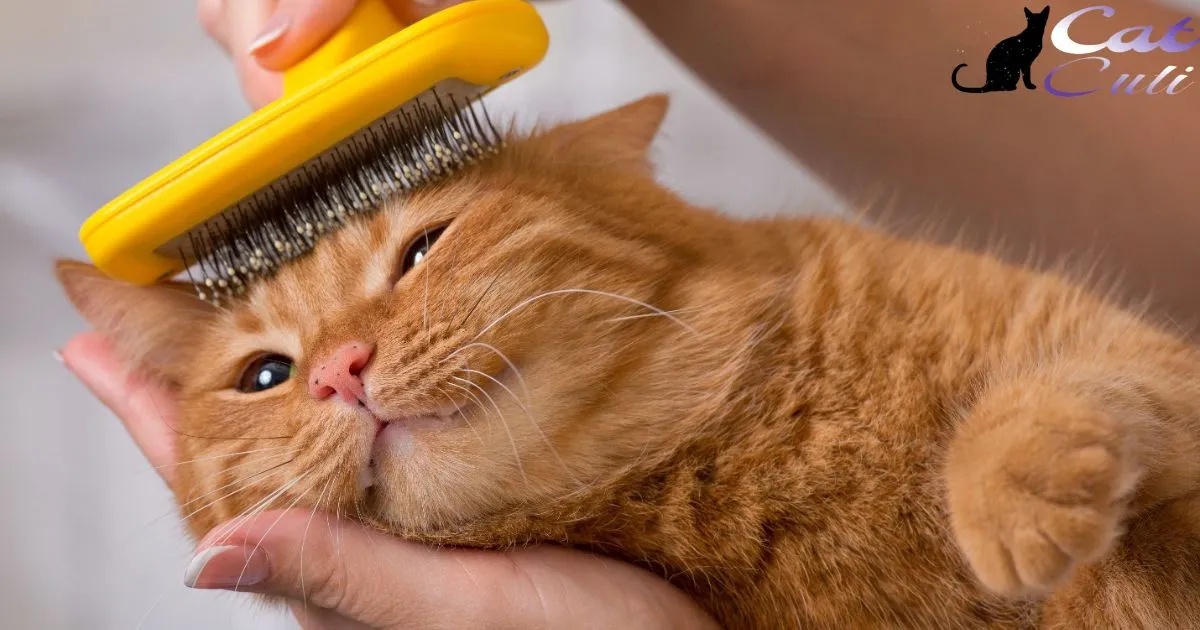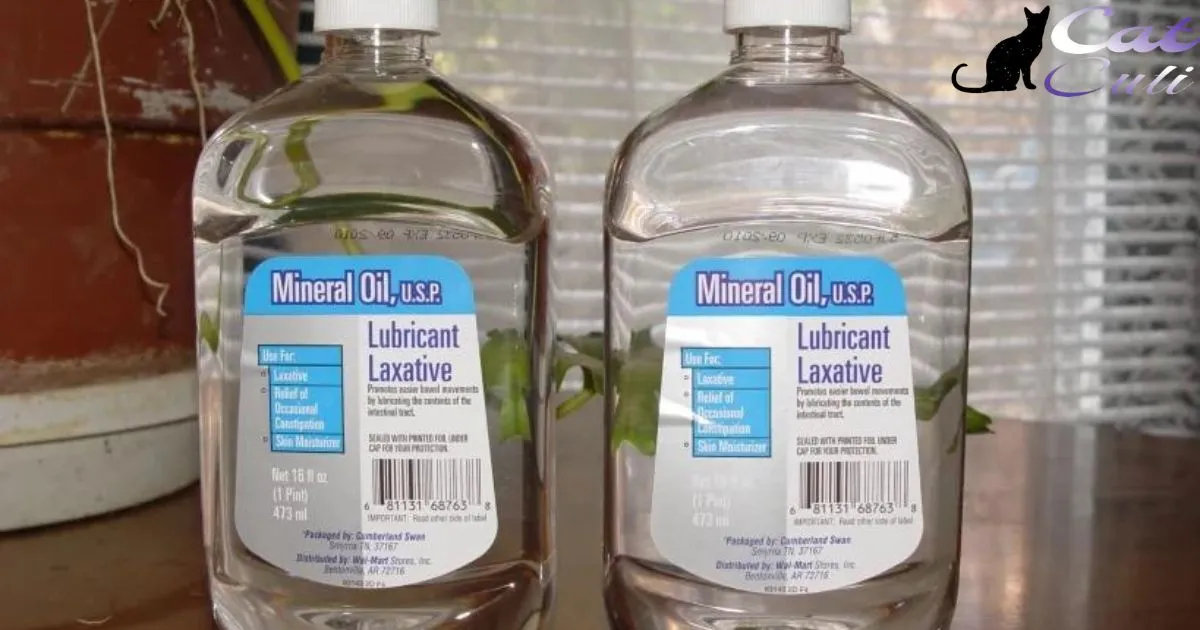Constipation is a common health issue for cats that many owners seek to remedy. One potential treatment is mineral oil, but is this petroleum-derived lubricant actually safe for feline use? Mineral oil for cats proves a controversial topic, with vets and health sites conflicted over proper dosage and potential risks. Getting the facts before making a decision is key.
Mineral oil lubricates the digestive tract to ease the passing of stools. The liquid stool softener is easy to administer, sold over-the-counter, and offers an affordable constipation relief. For short-term use, sites like CatTime recommend mineral oil as generally safe for cats when following vet guidelines on proper dosage. Starting with small amounts like 1 tsp and limiting treatment to 2-3 days helps avoid side effects.
Other sources cite serious potential risks of mineral oil for cats. Long-term inflammation or lung damage can occur if cats inhale the oil. To avoid aspiration, many vets recommend avoiding mineral oil altogether and using high-fiber foods or moisture supplements instead. While mineral oil may provide temporary relief, the consensus on safety for cats remains questionable at best. Evaluating all treatment risks and benefits with a vet is advised.
Cat Licked Mineral Oil
A cat licked mineral oil after encountering it on a kitchen cutting board. Mineral oil can pose aspiration risks if ingested by cats. However, the cat likely only licked a tiny amount in this case. As long as the cat did not directly inhale quantities of mineral oil, it should be fine.
Veterinary sites state mineral oil is only seriously dangerous if used improperly. Direct oral administration risks lung inflammation. But incidental minor contact, as from grooming oil off fur, does not share the same hazards.
Monitoring the cat is still wise. Ensure normal eating, drinking, breathing, and bathroom habits. Urgent medical care is needed if symptoms arise. Overall though, a small lick should not harm a healthy cat.
Mineral Oil Safe For Cats
Is mineral oil safe for cats when used as a laxative for treating constipation? This comprehensive guide examines the uses, risks, proper dosage, and safety concerns of using mineral oil for cats.
What is Mineral Oil?
Mineral oil is a liquid petroleum byproduct commonly used as a laxative for both humans and animals. For cats, it works by:
- Softening and lubricating stools
- Increasing moisture in the bowels
- Making defecation easier
Vets may recommend mineral oil to relieve constipation in cats. It’s affordable, sold over-the-counter, and offers a practical home treatment.
However, mineral oil also carries risks, especially regarding aspiration into lungs. There are considerable disputes over its safety for feline use.
Is Mineral Oil Safe for Cats?
There is conflicting evidence on the safety of mineral oil for cats:
Potential Benefits
- Effective short-term constipation relief
- Affordable and easy to administer
- Can ease defecation problems when used properly
Potential Risks
- Aspiration into lungs causing inflammation or damage
- Intestinal distress or diarrhea from too much oil
- Safer alternative remedies exist
- Questionable long-term safety
Vet opinions also diverge greatly on whether mineral oil should be given to cats at all.
Some vets argue:
- Safe in small doses for short-term use
- Follow precise vet guidelines on dosage
Other vets argue:
- Too risky even in small amounts
- Permanent internal damage can occur
- Avoid in favor of safer alternatives
Evaluating all pros and cons with your vet is strongly recommended before using mineral oil for a constipated cat.
Proper Dosage Guidelines
If your vet does approve mineral oil, following exact dosage guidelines is crucial:
Recommended Dosage
- Initial dose: 1 tsp
- Maximum dose: 1-2 tsp
- Duration: 2-3 days only
Administration Tips
- Mix with food to reduce aspiration risk
- Give through oral syringe if needed
- Never leave oil unattended
Do not exceed vet-prescribed amounts. Too much can harm your cat’s digestive health.
Monitoring your cat to ensure proper swallowing without choking on or inhaling the oil is also vital for safety.
Can I Give My Cat Mineral Oil For Hairballs

Pet sites advise against using mineral oil for cat hairballs. The oil poses aspiration risks if inhaled during vomiting. Sites warn mineral oil easily enters lungs when cats retch up hairballs. This causes severe inflammation or even fatal damage.
Curious cat owners often ponder the question, What did cats eat before cat food? In search of answers, many turn to various sources suggesting commercial hairball remedies as a solution. These remedies typically consist of petroleum jelly infused with enticing flavorings designed to stimulate feline appetites.
Added fiber also helps move hairballs out in stool. Such products provide safer lubrication. They reduce risks from direct mineral oil administration. Overall, well-formulated hairball aids better suit feline needs.
Signs of Mineral Oil Toxicity
Watch for these signs of mineral oil overdose or toxicity:
- Excessive drooling or gagging
- Breathing issues
- Lethargy or weakness
- Diarrhea
- Dehydration
If you observe any distress signals, stop mineral oil treatment and call your vet or animal poison control right away. Timely treatment greatly improves the chance of recovery.
Safer Alternatives to Mineral Oil
Many vets advise against mineral oil due to potential irreversible lung damage from aspiration. Gentler alternatives exist to relieve constipation, including:
| Method | Details |
| Canned pumpkin | High fiber helps stimulate bowels |
| Cat grass | Chewing aids digestion |
| Wet food | Moisture softens stool |
| Probiotics | Supports healthy gut flora |
| Stool softeners | Ask your vet for cat-safe options |
Avoid any treatment not explicitly approved by your veterinarian. While home remedies may help temporarily, they can also seriously harm cats if used incorrectly.
Olive Oil For Cat Constipation
Some sites recommend olive oil to relieve cat constipation. A quarter teaspoon can soften stool in mild bouts. But olive oil risks diarrhea or vomiting if overused. And it does not treat root diet issues causing chronic constipation.
Better options exist long-term. Adding canned pumpkin or probiotics aids digestion. Wet food boosts moisture to ease passage. And vets can prescribe safe, effective cat laxatives.
Olive oil should only be a last resort for acute issues, if at all. It does not replace proper high-fiber nutrition and vet care for recurring constipation. Overall, olive oil makes an unreliable remedy compared to gentler, cat-friendly approaches.
The Verdict: Use With Extreme Caution

In most cases, mineral oil is not recommended for cats according to prominent veterinary sites like VetInfo and PetMD. The risks tend to outweigh potential benefits.
However, short-term use in tiny amounts may be appropriate for some cats under strict vet supervision. Cats with severe, recurring constipation sometimes receive mineral oil as a last resort while transitioning to a long-term diet change.
Mineral oil should never be given to cats:
- In amounts exceeding vet instructions
- For more than 2-3 days consecutively
- Without properly monitoring for aspiration
In general, safer alternatives exist. Discuss all treatment options thoroughly with your vet before using mineral oil laxatives in cats. Your vet can help determine if your cat might benefit from cautious mineral oil use or if gentler options are more appropriate.
How Much Mineral Oil To Give A Kitten
Sites strongly advise against ever giving mineral oil to kittens. Their smaller bodies cannot handle even tiny doses safely. Kittens also groom excessively, greatly raising aspiration risks. Just minor contact while self-cleaning leads to lung inflammation.
Instead, adjust kitten diets to prevent constipation issues. Add more moisture through wet foods or broths. Boost fiber with a little canned pumpkin. Avoid dehydration and stimulate digestion through plenty of fluids.
Check with a vet before giving any medications or oils. Kittens need specialized care customized to their young systems. Their delicate state leaves no room for risks from mineral oil use.
Frequently Asked Question
Is mineral oil safe for constipated cats?
Yes, mineral oil can help relieve constipation in cats when given orally in small amounts.
Can I give my cat mineral oil daily?
No, mineral oil should only be given to cats for 2-3 days maximum to treat constipation. Long-term daily use can cause serious health issues.
What are the side effects of mineral oil for cats?
Mineral oil is generally safe if used properly, but aspiration into the lungs or long-term use can cause lung inflammation and other problems.
How much mineral oil can I give my cat?
Give 1-2 teaspoons per day for no more than 2-3 days. Check with your vet for the proper dose for your cat.
Should I give my cat an enema with mineral oil?
No, enemas and other ways cats can ingest mineral oil carry risks. It’s safer to give oral doses mixed with food under a vet’s guidance.
Conclusion
The sources provide conflicting information on whether mineral oil is safe for cats. Some state that small doses may help relieve constipation. However, there are risks of lung inflammation or other problems if cats inhale mineral oil or it is given long-term.
Pet owners should exercise caution before giving mineral oil to cats. Consult a veterinarian first, follow their dosage instructions carefully, and only use it short-term.
Safer alternatives may be preferred, as improper mineral oil use poses aspiration and other risks for cats. Overall the sources suggest mineral oil does carry risks and should not be a first choice for treating cats.








